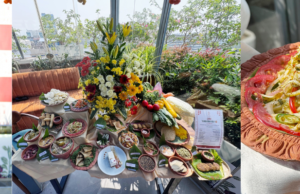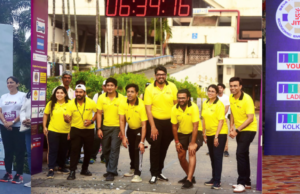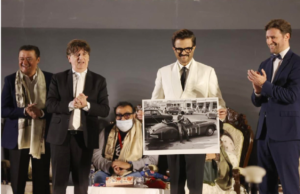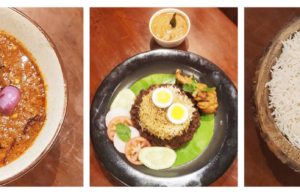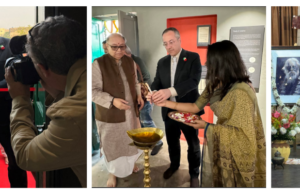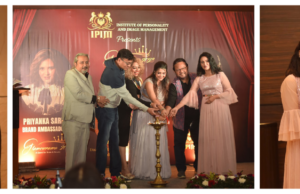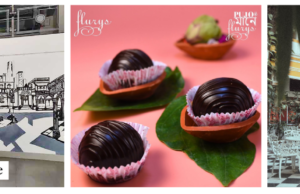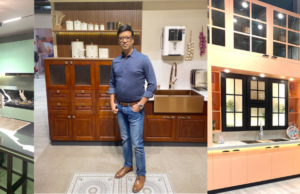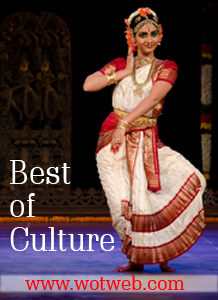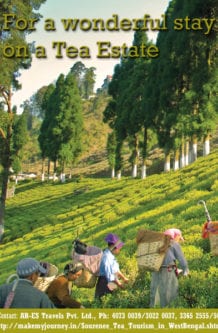
WoT's Hot
The atmosphere at a Chanoyu –Japanese Tea Ceremony is one of calm, infused with tradition, and so it was at the Japanese Consul General, Masayuki Taga’s residence, when two Tea Masters from Japan were present to take us through a beautifully and flawlessly crafted afternoon. To understand and imbibe the Urasenke Chado tradition, “chado” literally meaning “way of tea.” It is indeed a way of life with the Japanese, but as in everything in that country, there are centuries of mastery and cultivation of the tradition.
The setting was minimalistic − the basic requirements of tea making set out with a single stem flower arrangement, fresh from the garden, and a calligraphed scroll in the background which spelt out “harmony, respect, tranquillity and purity.” The compact audience waited, “peaceful in mind”, to receive the offerings from Tea Master Kuniko Inukai while another Tea Master Yuri Shirai explained the ceremonial journey in English.
A wondrous empathetic ensued between the teacher, the host and the guests as each was served matcha tea in ceramic bowls emblazoned with Japanese scenes and symbols, being exhorted to hold them and turn them twice in a certain way, and then to drink deep from it − a jade-green brew that had a thickish consistency, a bitterish bite − an “umami” flavour, really, and a very satisfying warmth.
There was total concentration by Souhou (Kuniko) Inukai, as she measured out the tea powder into individual bowls, adding water on the boil on a brazier, and then, with delicately studied movements, whisked the tea with an artistic bamboo whisk. We received it with gratitude and learned of another traditional politeness. We were told to use the phrase” Osakini shitsureishimasu” or “Do pardon me for going ahead of you” as we received the bowl of tea and turned to the guest at our side to excuse ourselves for drinking ahead of her.
We were glad to be at the receiving end of the Urasenke tradition, which has been summed up as the art of living, “nurtured on Japanese soil” and representing he quintessence of Japanese aesthetics and culture”. Urasenke is involved with promoting worldwide understanding and appreciation of chado, and we are told that under its banner tea houses and tea rooms have been set up worldwide.
And one final beautiful takeaway—“Ichigo Ichie”, which, translated means Once in a Lifetime. It is believed through this phrase that the encounter (which we experienced) cannot be repeated, and is something that is associated with Japanese tea ceremonies. It was for this time only, never again. A one-time occasion, one moment, one meeting.
A peaceable way to commune. As we left saying “Arigatou Gozaimasu”, there was a tranquillity that settled into us, through this particular never to be replicated encounter, where many harmonious philosophies were imbibed.
Photo credits: Banner Photos from www.telegraphindia.com
The atmosphere at a Chanoyu –Japanese Tea Ceremony is one of calm, infused with tradition, and so it was at the Japanese Consul General, Masayuki Taga’s residence, when two Tea Masters from Japan were present to take us through a beautifully and flawlessly crafted afternoon. To understand and imbibe the Urasenke Chado tradition, “chado”
Other Articles in KULTURY VULTURY WOT
What to read next
Featured articles
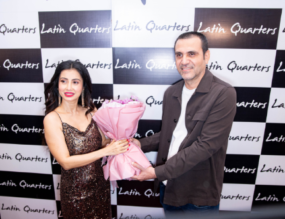
Welcome Festive Season in Glam, Latin Quarters Launches new #PujoBling Collection with Monami Ghosh
by WOT




